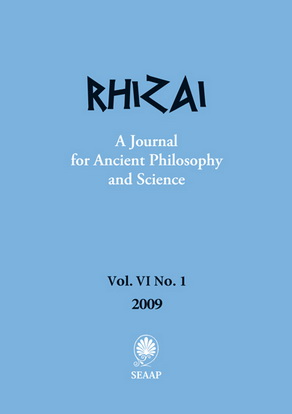Aristotle on Thinking
Aristotle on Thinking
Author(s): Michael FredeSubject(s): Philosophy
Published by: Издателство »Изток-Запад«
Keywords: thought; perception; sense; sensing; sensible; aisthesis; noein; nous; phronein; phronesis; experience; empeiria; impression; phantasia; cognition; discrimination; Presocratics; Democritus
Summary/Abstract: This paper elucidates Aristotle’s conception of thinking in two stages. First, the paper examines the passages in which Aristotle criticizes his Presocratic predecessors for failing to understand what thinking is. The examination shows that Aristotle took his earlier predecessors to assimilate thinking (noein) to being sensible (phronein) and both to perceiving (aisthanesthai), largely because they do not realize that thinking has a distinctive feature which makes it radically different from both being sensible and perceiving. Second, the paper examines the passages in which Aristotle explains what the distinctive feature of thinking is. It is shown that the distinctive feature of thinking is that it is discriminative of intelligible features, and these are unchanging items of reality inaccessible to senses, called ‘forms’ or ‘universals’. The upshot of the paper is that Aristotle, in contrast to Plato, does not believe that we are born with the ability to think, but rather that we acquire it in the course of our cognitive development.
Journal: Rhizai. A Journal for Ancient Philosophy and Science
- Issue Year: V/2008
- Issue No: 2
- Page Range: 287-301
- Page Count: 15
- Language: English
- Content File-PDF

